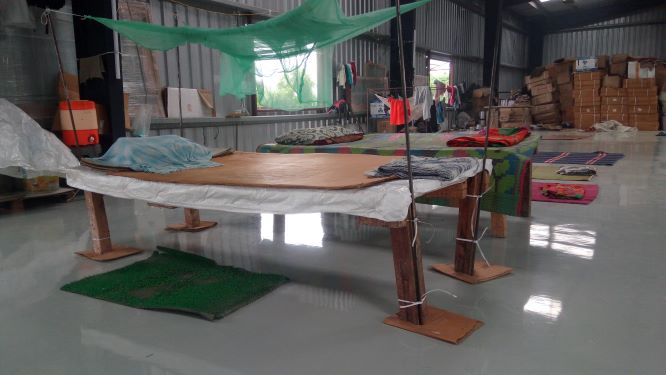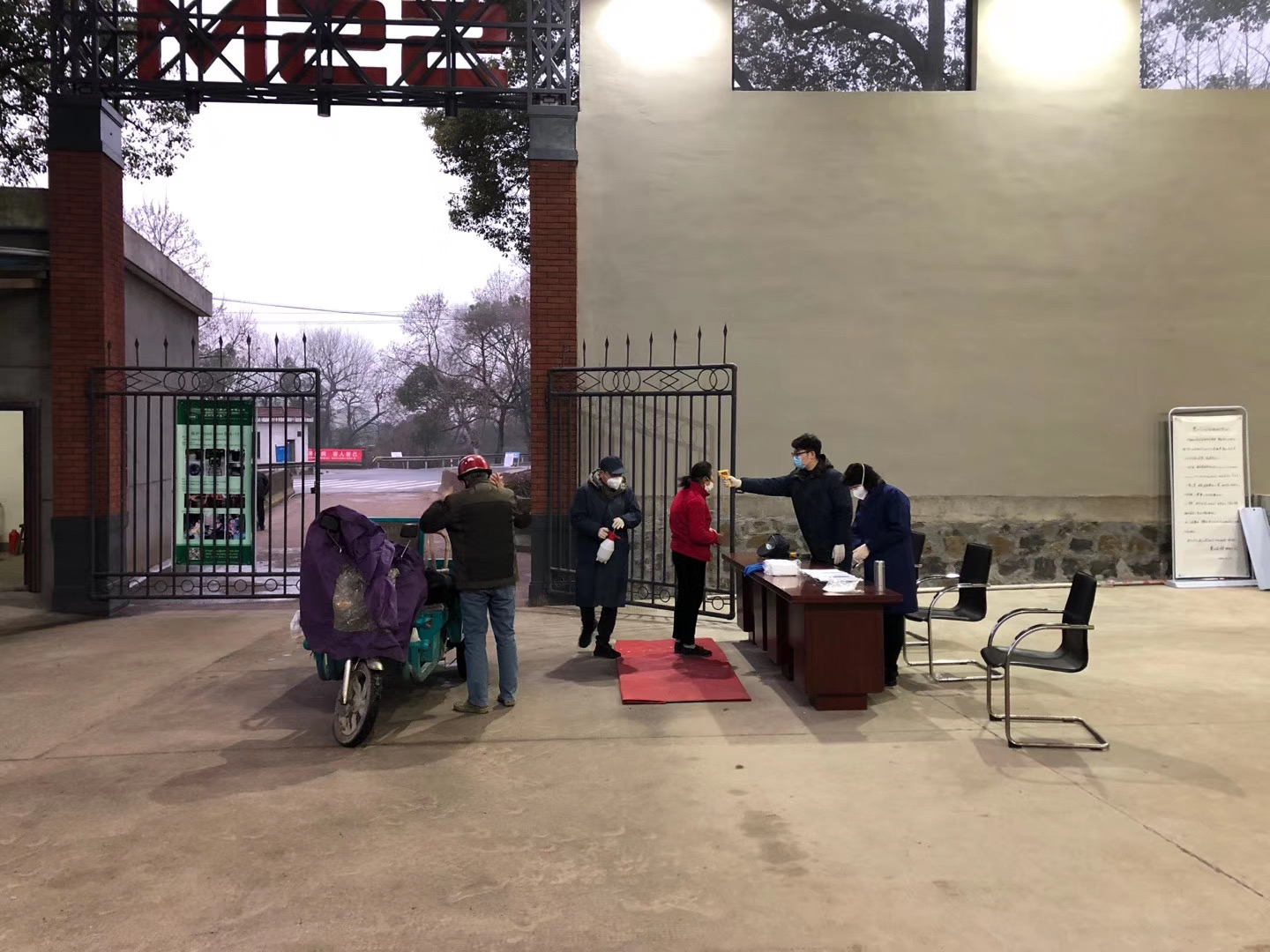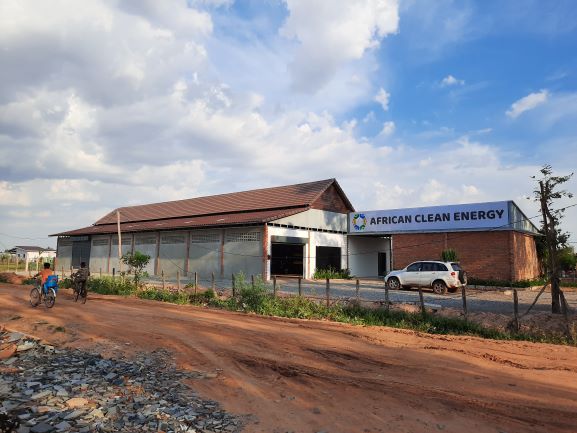COVID-19 Impacts on Biomass Stove Manufacturing
The COVID-19 pandemic has caused a multitude of challenges for companies worldwide, including those selling clean cookstoves and fuels in developing countries. A survey conducted by the Clean Cooking Alliance (Alliance) in April showed that nearly one-third of the 111 company respondents had temporarily ceased operations, while two-thirds were expecting moderate to severe disruptions. A July survey of 613 energy access companies across 44 countries, conducted by the Energising Development (Endev) programme and partners, including the Alliance, found that companies continue to experience significant stress. These trends imperil progress toward Sustainable Development Goal 7 (to ensure access to affordable, reliable, sustainable and modern energy for all).
One finding from the Alliance and Endev surveys was that industrial-scale manufacturers of biomass stoves – a segment within the clean cooking sector – have faced disruptions across most areas of operations, including manufacturing and supply chains. To better understand these challenges and distil lessons learned, we interviewed three prominent biomass stove manufacturers: African Clean Energy (ACE), Greenway Grameen (Greenway), and Shenzhou Stove Manufacturers (SSM).
Impacts on manufacturing have driven companies to adapt in unique ways
ACE, a manufacturer with its primary production facility in Lesotho, closed its operations for six weeks in March and April, as per country-wide government guidelines. Even though ACE was eventually classified as an “essential service,” the government provided little clarity around permissible activities. In response, ACE expedited its pre-pandemic plans to set up a manufacturing base in Cambodia, allowing the company to meet growing consumer demand in Uganda. With the possibility of a second lockdown continuing to affect operations in Lesotho, the Cambodia manufacturing base has provided the company with much-needed flexibility.
Meanwhile, Greenway, a manufacturer with operations in India and Zambia, had to shut down its sole manufacturing facility in Gujarat, India, for nearly a month. Once lockdown restrictions eased, the company had to find creative ways to address employees’ health and travel concerns, as many commute long distances using public transportation.
“We temporarily converted our new 2,000-square-foot office space into a dormitory for resident workers, while also stocking up on disinfectant supplies,” said Ankit Mathur, one of Greenway’s Co-founders. “About fifty percent of the workers still chose to travel from home, which we were okay with as long as they were not coming from red zones.” While such arrangements added a three-week delay to the reopening of Greenway’s operations, they provided workers with the needed sense of safety to return to work.
On the other hand, some manufacturers did not experience significant impacts due to the lockdowns, as evidenced by our interviews and the Alliance and Endev surveys. For instance, SSM, one of the largest manufacturers of biomass stoves in the world, was minimally impacted from an operational standpoint. Its facility near Hangzhou, China had to close for two weeks in February, but since lockdown restrictions coincided with Chinese New Year, it meant only five additional days of disruption.
Supply chain disruptions have led to production delays
While the three companies face divergent supply chain dependencies, they have all experienced disruptions. Since Greenway and SSM source raw materials domestically, they have only faced moderate shipment delays. ACE, on the other hand, which sources steel components from South Africa, electronics from Vietnam, and batteries and solar panels from China, experienced more severe delays due to Lesotho’s border closing in March and April, as well as shipment setbacks in Asia.
COVID-19 restrictions have also affected downstream distribution. In a few countries, SSM’s finished goods inventory was held at customs during lockdowns. For its part, Greenway has not been able to consistently supply products to its key markets in Karnataka and the rest of South India. Further, its export container shipment to Zambia, which typically takes around 40 days to reach the destination port, has taken close to 70 days during the pandemic. These lags have stretched working capital requirements, as payments are often made upon delivery at the destination port.
Companies have prioritized worker safety protocols
Not only have ACE, Greenway, and SSM all required workers to wear masks, use hand sanitizer, and ensure social distancing, but they have also implemented additional safety measures based on government guidelines. For instance, SSM introduced staff temperature checks at the entrance of its manufacturing facility, began distributing face masks and disposable gloves, and started disinfecting its workshop, office, and vehicles on a daily basis. Further, the company instituted the use of a “COVID-19 Health” QR code to track daily movements at the workshop and began serving meals separately instead of at the onsite cafeteria.
Looking ahead
As COVID-19 related restrictions ease around the world, companies are resuming operations. However, uncertainty around the evolving situation requires thoughtful and proactive crisis management. The experiences of these three companies offer real-world examples of the value of resilient business models and scenario planning.
Adapting to demand and supply chain disruptions
Most of the biomass stove companies that responded to the Alliance and Endev surveys reported depressed sales since the beginning of the pandemic, due to both the inability of sales staff to operate, and the reduction of consumers’ ability to pay. However, companies with diversified consumer markets have shown themselves to be less affected, as demand risk is distributed. For instance, while Greenway faced significantly reduced sales in India, the company was able to continue manufacturing to meet steady demand in Zambia. Greenway is currently producing close to 18,000 stoves per month, above its 2019 monthly average. Similarly, reduced demand for ACE’s products in Lesotho was partially offset by purchase orders in Uganda.
The three companies also underlined the importance of maintaining good supplier relationships by ensuring timely vendor payments and closely monitoring their operations. Cultivating relationships with alternate raw materials suppliers over the years has proven valuable in reducing exposure risk. In addition to its new manufacturing base in Cambodia, ACE is already exploring different supply chain models, such as consolidating components in Vietnam and shipping flat pack units directly to target markets. Greenway, meanwhile, is exploring the decentralized assembly of stoves closer to consumer markets.
Importance of staff and communication
All three companies recognize the central role played by their staff and the importance of keeping them safe, motivated, and informed during these difficult times. Judith Walker, Chief Operating Officer at ACE, highlighted the importance of communication via chat groups to provide information on company status, staff health, and safety training.
“What worries me a lot is the circulating of false messaging about COVID-19 and the mistrust that is created by fear mongering,” Walker said. “We’ve tried to be really consistent and reassuring wherever we can be…The best we can do is verify information with official sources, communicate as honestly and frequently as possible, and prioritize everyone’s health and safety above all.”
At Greenway, beyond providing accommodation at its production facility, the company has empowered its employees through a pre-COVID-19 scheme that provides a down payment on bike purchases, allowing them to forego public transport.
Use of technology
More and more companies in the clean cooking sector are utilizing data tools to generate, manage, and analyze customer and operational information. In the current environment of uncertainty, use of digital systems is needed not only for efficiency gains and quality control, but also for business continuity. For instance, with many ACE employees already familiar with digital tools prior to the pandemic, the company was able to roll out a new data collection app remotely.
While there may seem to be limited scope to go digital or remote in traditional manufacturing, SSM has been moving in that direction. From producing handmade stoves in its early days, the company now runs semi-automatic operations, doubling its production capacity to an impressive 5,000 stoves per day (or over 1.8 million per year). Further, as the pandemic provided the company with an incentive to review, assess, and improve its manufacturing methods, SSM is in the process of building a new factory with fully automatic processes.
“We are excited to transition to full automation in the factory by 2021. This will include use of robotics for welding, painting, and punching,” said Chenkai Wang, Division Business Manager at SSM.
The COVID-19 pandemic has posed and continues to present a serious threat to companies across the world, exemplifying the importance of quickly adapting business models, making them more resilient by reducing specific risk exposures, introducing customized enhancements and efficiencies, and leveraging digital technology.



